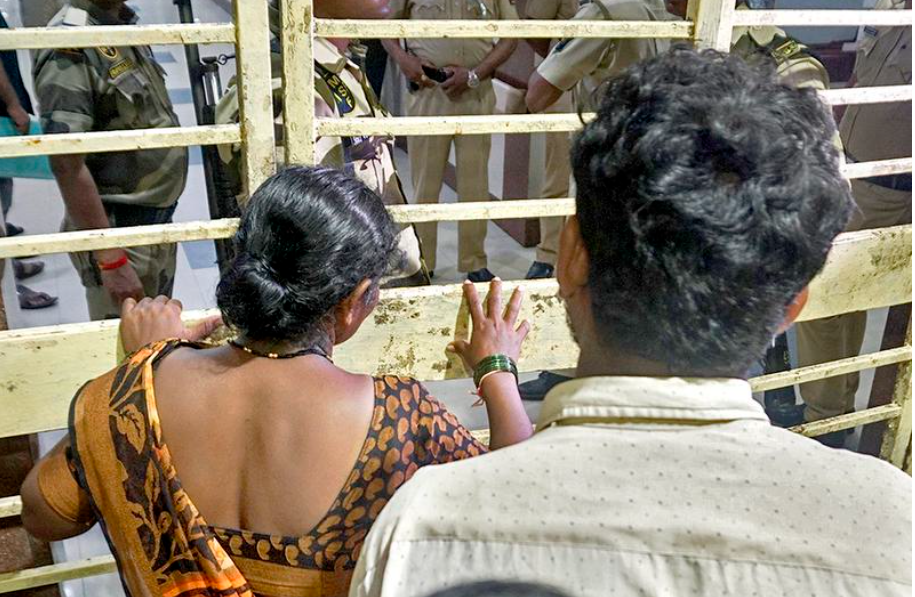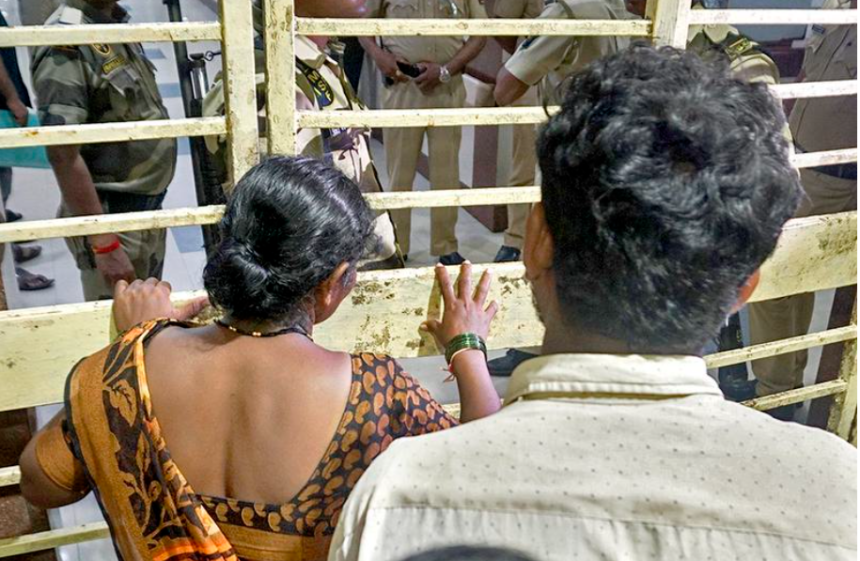Introduction
In a Badlapur significant development that has raised concerns about law enforcement practices and accountability in India, a single-member panel has been established to investigate the controversial shooting of Akshay Shinde, the accused in the Badlapur case. The encounter, which occurred on September 23, has sparked widespread debate about police encounters and their implications for justice and human rights. The panel, headed by former Chief Justice of the Allahabad High Court, Dilip Bhosale, is tasked with examining the sequence of events surrounding the shooting, assessing police conduct, and recommending measures to prevent similar incidents in the future. This article explores the context of the Badlapur case, the significance of the panel’s investigation, and the broader implications for law enforcement in India.
Background: The Badlapur Case
The Incident and Accusations
The Badlapur case refers to a series of incidents that unfolded in the town of Badlapur, Maharashtra, where Akshay Shinde was implicated in a crime that led to significant public outrage. The case garnered media attention due to its violent nature and the subsequent actions taken by law enforcement. Shinde was accused of being involved in a crime that resulted in multiple fatalities, prompting the police to take swift action to apprehend him.
Police Encounter: What Happened?
On September 23, while Shinde was in police custody, an encounter took place that led to his death. Accounts of the encounter suggest that police claimed it was an act of self-defense, asserting that Shinde had attempted to escape and posed an imminent threat. However, conflicting reports and eyewitness accounts have raised questions about the legitimacy of the encounter, leading to public demands for accountability.
Public Reaction and Calls for Accountability
The shooting of Akshay Shinde ignited public outrage, with activists, human rights organizations, and citizens calling for a thorough investigation into the incident. Concerns were raised regarding the use of excessive force by law enforcement and the lack of accountability for police actions in such encounters. The incident highlighted the ongoing debates surrounding extrajudicial killings in India and the need for reforms within the police system.
The Formation of the Panel
Appointment of Former Chief Justice Dilip Bhosale
In response to the public outcry and demands for transparency, the Maharashtra government announced the establishment of a single-member panel to investigate the shooting of Akshay Shinde. Former Chief Justice Dilip Bhosale was appointed to lead the inquiry due to his extensive legal experience and reputation for impartiality. The panel aims to provide an objective analysis of the circumstances surrounding the encounter.
Objectives of the Panel
The primary objectives of the panel are as follows:
- Investigate the Sequence of Events: The panel will delve into the timeline of events leading up to the encounter, including the actions of law enforcement and the circumstances under which the shooting occurred.
- Assess Police Conduct: An evaluation of the conduct of police personnel involved in the encounter will be conducted to determine whether proper protocols were followed.
- Recommend Preventive Measures: Based on the findings, the panel will suggest measures to prevent the recurrence of such incidents in the future, focusing on improving accountability and transparency within law enforcement agencies.

Timeline for the Report
The panel is expected to submit its report within three months, providing a comprehensive overview of the investigation and its findings. This timeline reflects the urgency of addressing the concerns raised by the public and ensuring that accountability mechanisms are in place.
Legal and Ethical Implications of Police Encounters
The Legal Framework Surrounding Police Encounters
Police encounters, particularly those resulting in fatalities, have been a contentious issue in India. The legal framework surrounding such encounters is often vague, leading to potential misuse of power by law enforcement. The Indian Penal Code and the Code of Criminal Procedure provide guidelines for police conduct, but ambiguities in these laws can create opportunities for extrajudicial actions.
Human Rights Concerns
Extrajudicial killings raise significant human rights concerns, as they violate the right to life and due process. Organizations such as Amnesty International and Human Rights Watch have consistently condemned extrajudicial killings in India, calling for greater accountability and legal protections for citizens. The shooting of Akshay Shinde has brought these concerns to the forefront, emphasizing the need for a reevaluation of police practices.
Accountability Mechanisms
Establishing accountability mechanisms is crucial to prevent abuses of power by law enforcement. Independent investigations into police encounters, as initiated by the formation of the panel, are essential for restoring public trust in the justice system. Reforms must focus on transparency, oversight, and accountability to ensure that law enforcement operates within the bounds of the law.
Impact on Policing Practices in India
Need for Comprehensive Police Reforms
The Badlapur shooting of Akshay Shinde and similar incidents underscore the urgent need for comprehensive police reforms in India. This includes reevaluating the training and conduct of police personnel, establishing clear guidelines for the use of force, and implementing measures to enhance accountability.
Community Policing and Engagement
Community Badlapur policing initiatives can play a Badlapur vital role in bridging the gap between law enforcement and the communities they serve. Encouraging collaboration between police and community members fosters trust and ensures that police actions are aligned with the needs and expectations of the public. Implementing community engagement strategies can help mitigate tensions and prevent violent confrontations. 
Focus on Preventive Measures
To Badlapur avoid future incidents, a proactive Badlapur approach to policing is essential. This includes prioritizing conflict resolution, de-escalation techniques, and mental health support for individuals in crisis. By addressing the root causes of crime and fostering a culture of cooperation, law enforcement can reduce the likelihood of violent encounters.
Public Perception and Media Coverage
Media’s Role in Shaping Public Opinion
Media coverage plays a crucial role in shaping public perception of law enforcement and police encounters. Sensationalized reporting can lead to misinformation and heightened tensions, while responsible journalism can promote accountability and transparency. The media’s portrayal of the Badlapur case and the subsequent investigation will influence public sentiment and trust in the justice system.
Activism and Public Discourse
The incident has sparked renewed activism and public discourse surrounding police accountability and human rights. Grassroots organizations, civil society groups, and concerned citizens have mobilized to demand justice and reform. Social media has become a powerful platform for raising awareness and fostering discussions about police encounters, amplifying calls for change.
Conclusion: The Path Forward
The establishment of a single-member panel to investigate the shooting of Akshay Shinde is a crucial step toward addressing the concerns surrounding police encounters in India. As the panel embarks on its inquiry, it must prioritize transparency, accountability, and a commitment to upholding human rights.
The findings of the panel will not only shed light on the circumstances of the Badlapur incident but also contribute to the ongoing dialogue about police practices and the need for reform. By focusing on comprehensive reforms, community engagement, and public awareness, India can work toward a justice system that prioritizes the protection of human rights and the principles of accountability.
As society grapples with issues of law enforcement, it is imperative for all stakeholders—government agencies, civil society, and citizens—to collaborate in creating a just and equitable system. The outcome of the panel’s investigation may serve as a catalyst for meaningful change, promoting a future where the rule of law prevails, and the rights of all individuals are safeguarded. ALSO READ:- Temporary Flex Board with Missing Line from Phule’s Poem Erected at Memorial 2024





